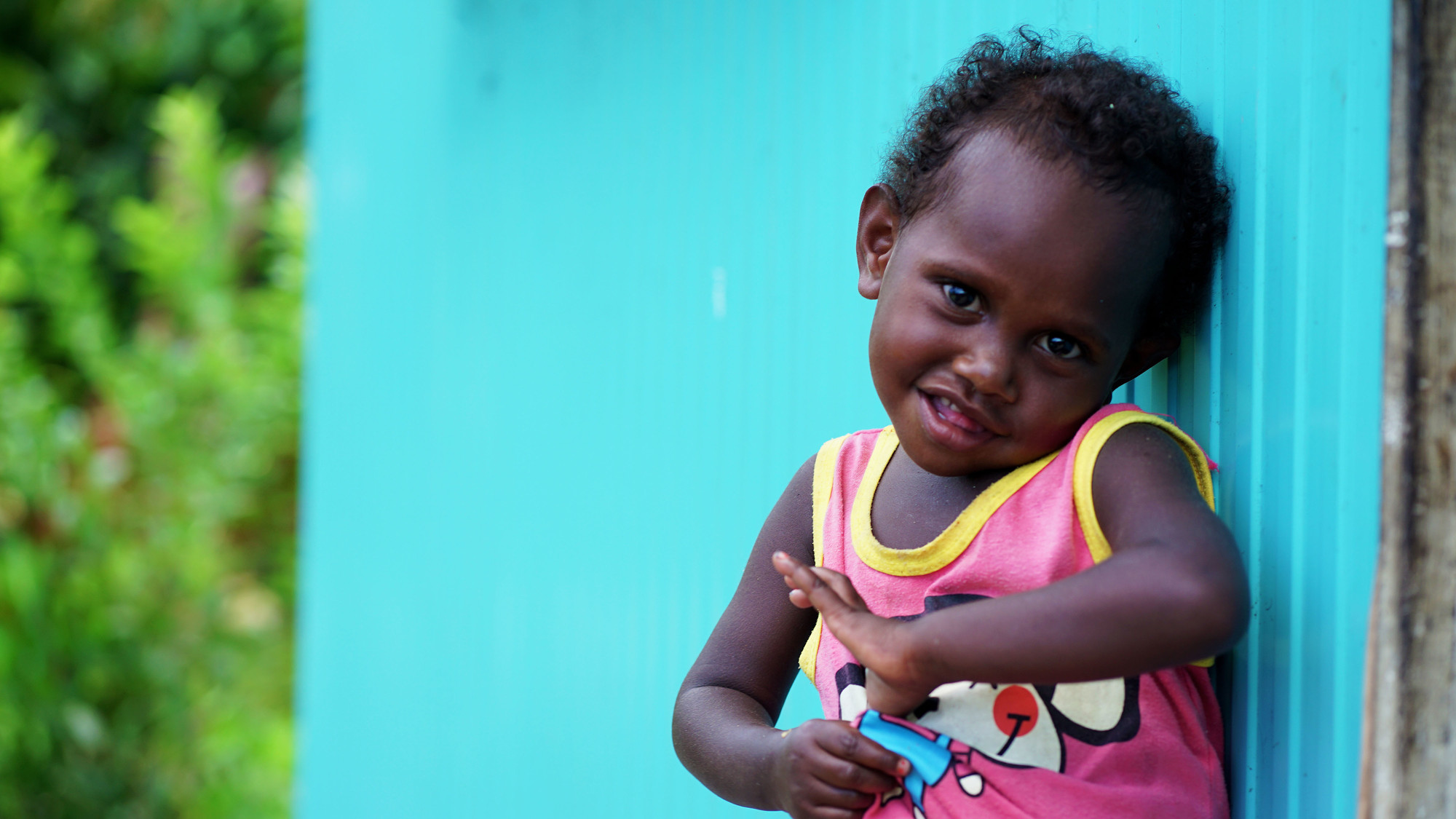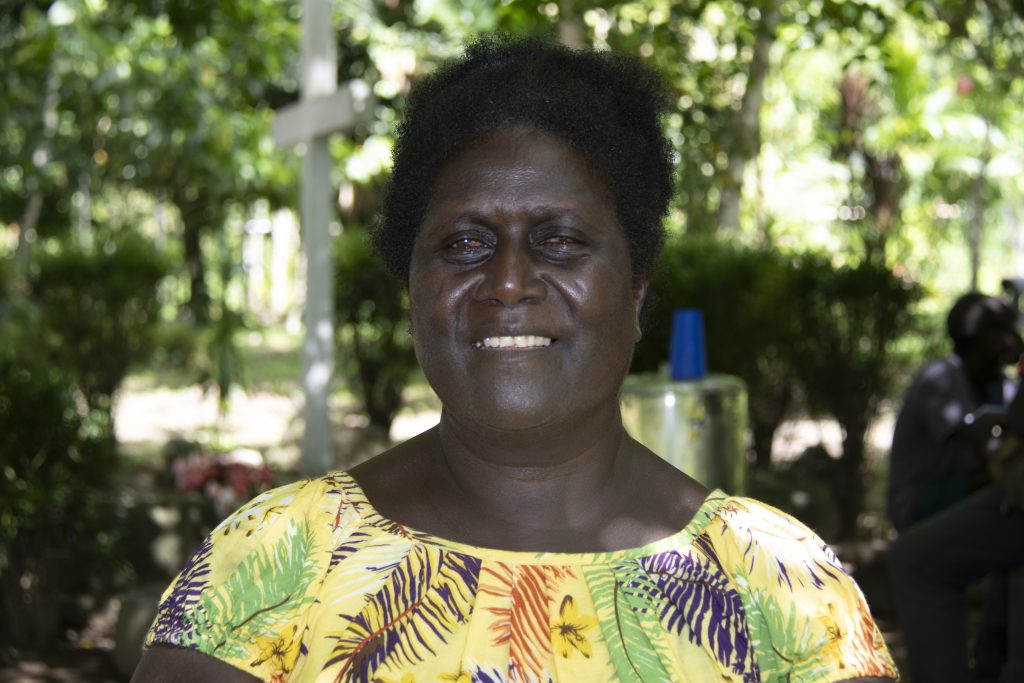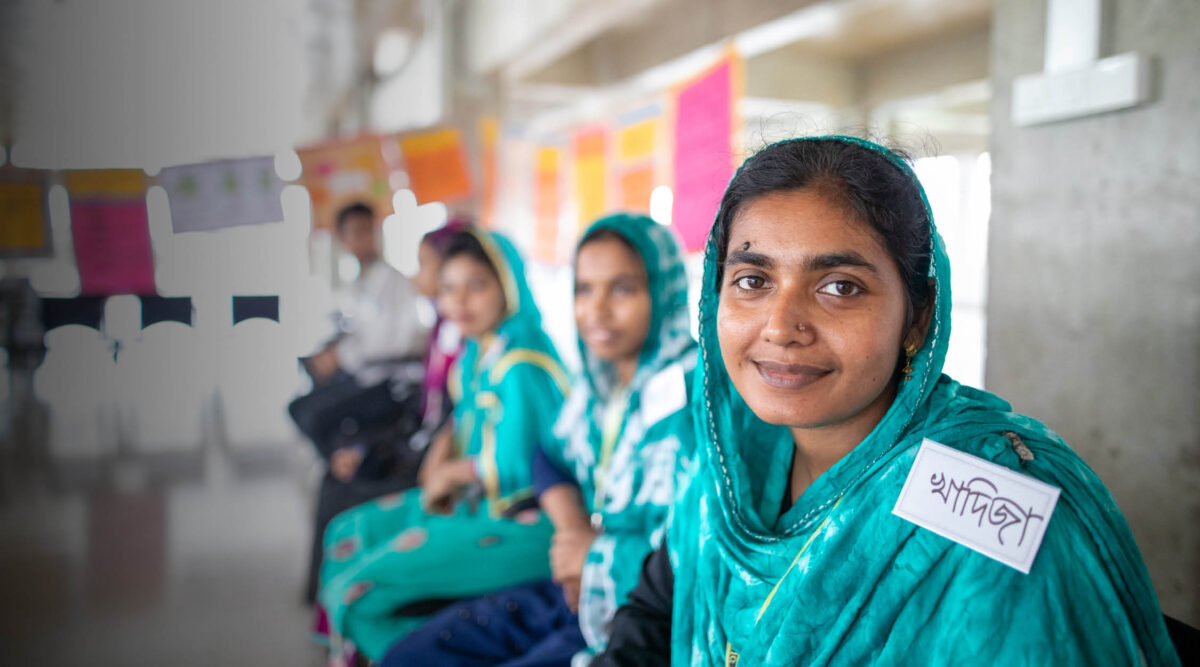Papua New Guinea, our nearest neighbour, faces many challenges in overcoming poverty.
More than 80% of the population live in rural areas, with limited access to health centres, education and agricultural services.
Women living in rural Papua New Guinea (PNG) suffer from poverty even more. They work long hours but are rarely involved in decision making and have little control over the money they earn or the land they farm. Almost two-thirds of these women are also victims of violence.
CARE has been working in PNG since 1989. We focus on creating a more equal world for women and girls by improving access to health services, health information and education, and providing support to develop farming skills and take part in local decision-making. We also work with communities and families, encouraging positive attitudes and behaviours towards women.
Fast Facts
Population: 10.76 million
Life expectancy: 67.8 years (67.8 years male, 71.2 years female)
Infant mortality: 32 deaths/1,000 live births
Under-5 mortality*: 41.4 deaths/1,000 live births
Maternal mortality: 192 deaths/100,000 live births
Adult literacy rate: 78.4% (65.6% male, 62.8% female)
Access to improved drinking water: 47.5% (86.2% urban, 41.5% rural)
Access to improved sanitation: 23.5% (57.8% urban, 18.2% rural)
Labour force: 3.252 million
Percentage of seats held by women in national parliament^: 2.7%
GDP per capita: $2,957
Latest estimates; Source: CIA World Factbook, *UNICEF, ^World Bank
Enga Landslide
In May 2024, a landslide engulfed villages in the Enga Province in Papua New Guinea, totally devastating the area and burying houses under eight metres of rock and rubble, where an estimated 7,000 people slept. The Government of Papua New Guinea has estimated that 2,000 people have been killed and thousands more have been displaced.
CARE International PNG rapidly responded to the humanitarian crisis with an initial supply of food, water and basic hygiene. In the recovery phase, CARE continued to provide support with shelter, WASH facilities, Protection and Agriculture.
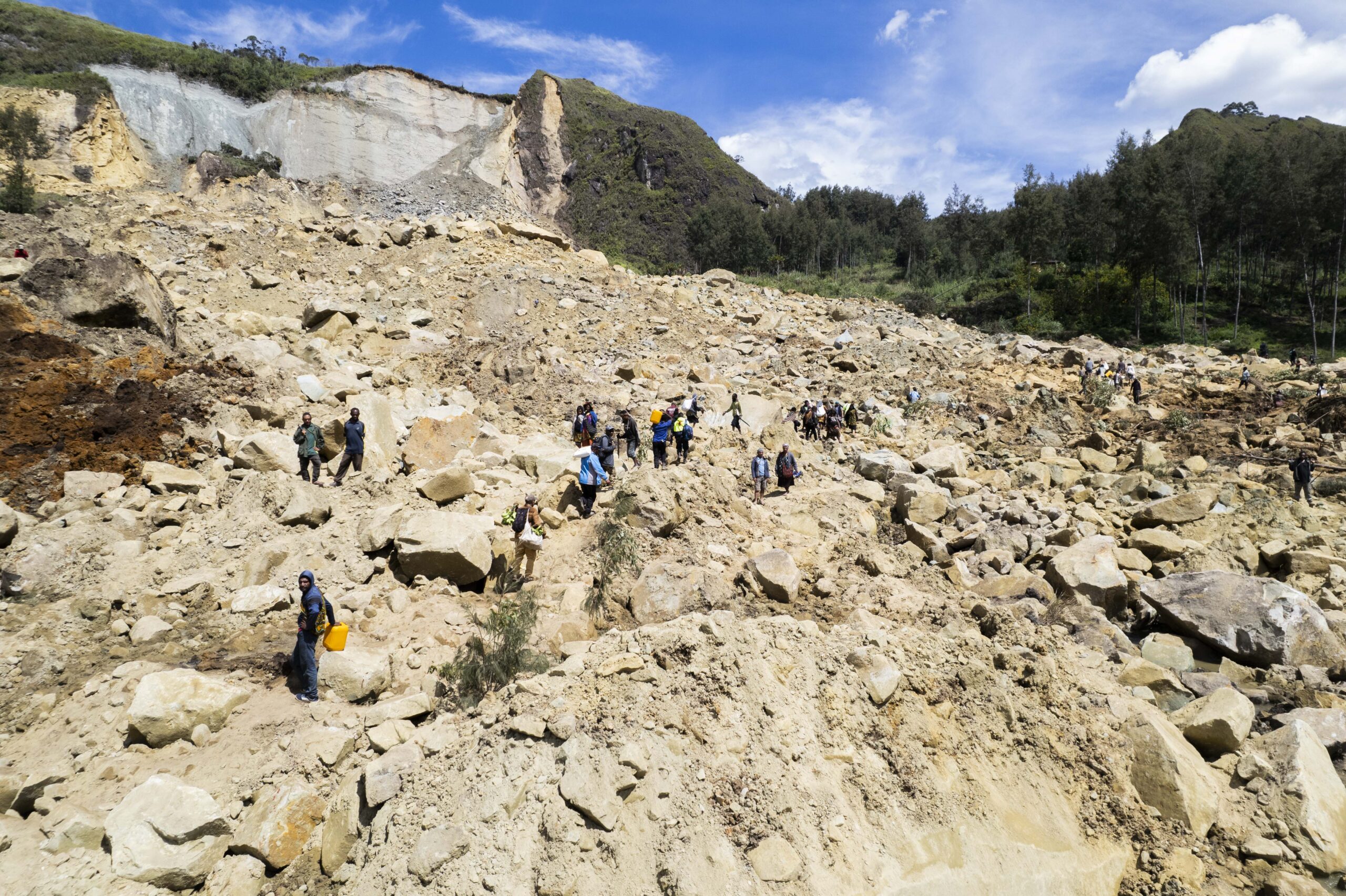
Empowerment through education
While PNG has had many years of strong economic growth, rural and remote areas of PNG are far behind, especially in education and health services. Weak governance systems are at the heart of the problem where the use of government funding is often not transparent.
Children, especially girls from remote communities of PNG, face challenges to gain a quality education. In the Eastern Highlands, CARE is helping communities to demand improved education services from the government. We are bringing together government officials, school management and parents to communicate directly about the challenges their schools face and come up with joint solutions. This process keeps the decision-makers accountable and brings a better outcome for schools, teachers and children.
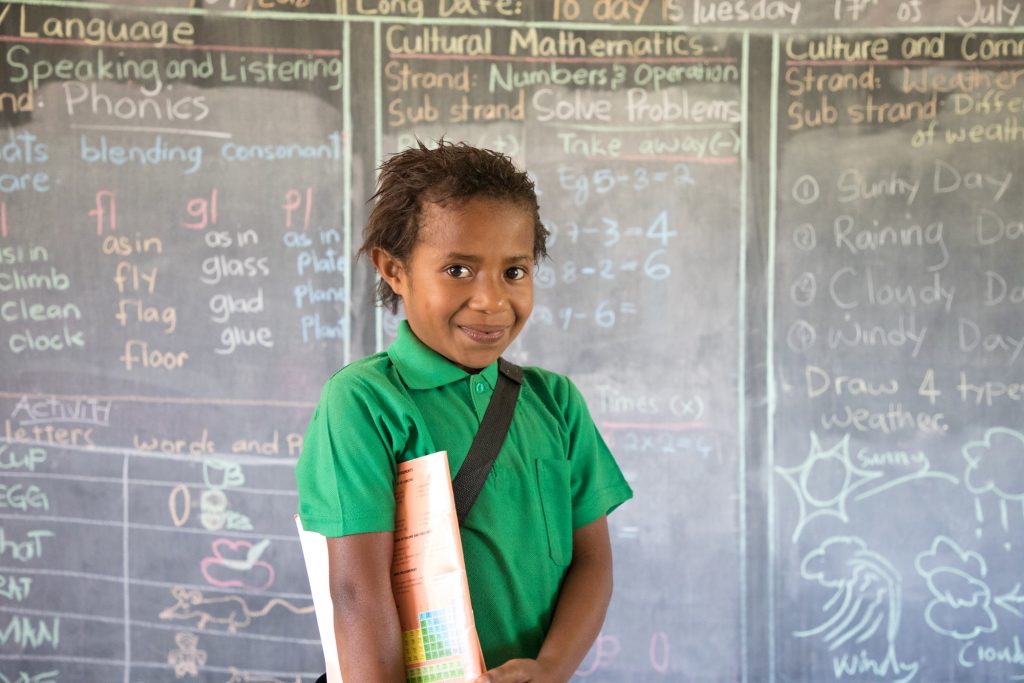
Improved health services
Many women in PNG die every year due to pregnancy or childbirth. An estimated 40% of women do not give birth in a health centre or hospital, putting them at greater risk of complications. Many of these women live in remote areas where a health centre could be many hours walk away. Thousands of newborns die every year, and thousands more that survive birth do not make it to their fifth birthday.
In remote communities, Village Health Volunteers bridge an essential healthcare gap. CARE has trained hundreds of local Village Health Volunteers selected by the community. These volunteers teach women and their families about women’s health, nutrition, and hygiene needs during pregnancy. They educate families about the danger signs to look out for during pregnancy and when and how to seek help. They also emphasise the importance of giving birth at a health clinic.
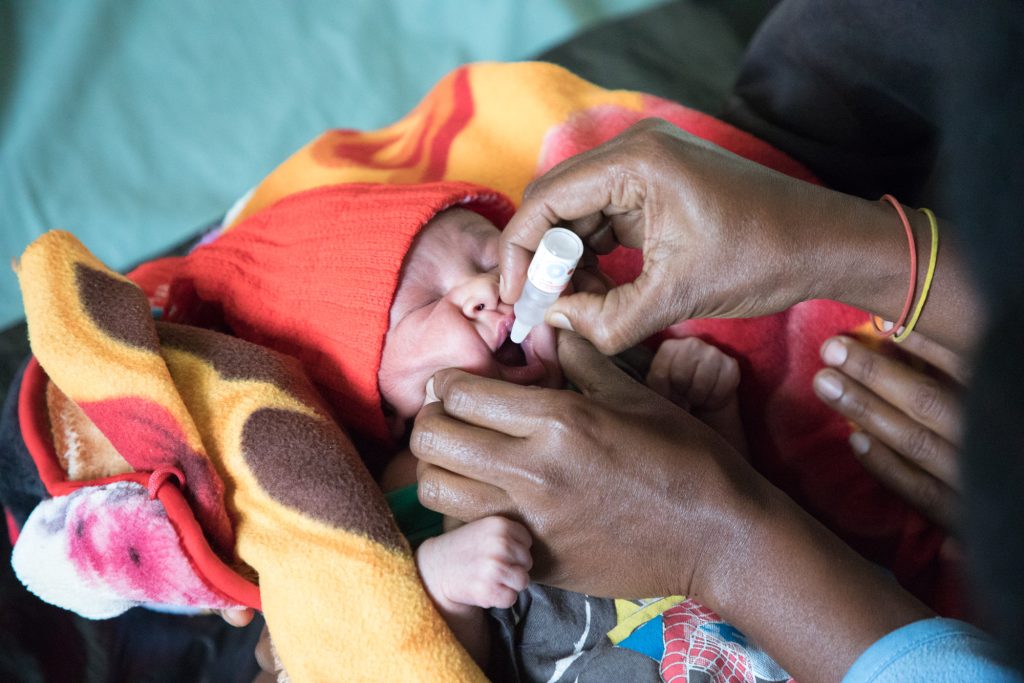
Empowering women and girls
Coffee and cocoa are major exports for PNG. Yet women who provide the majority of labour for small cocoa and coffee farms often miss out on the benefits of farming incomes. Women bear the double burden of household chores and farming work but have little control over the money they earn or the land they farm.
CARE’s coffee and cocoa programs aim to improve the situation for women farmers by working with coffee and cocoa exporters. We are building the agricultural skills of coffee and cocoa farming families, keeping the benefit of the women workers in mind. These families are then encouraged to share their new skills and knowledge with their neighbours and the broader community. CARE has trained thousands of coffee farmers on farm management and family business management. The training helps the farmers understand how important it is to give women an equal share in making decisions, household work and income. Men’s attitudes and behaviours towards women are already changing for the better, and farming practices are improving because of this training.
We are working with the cocoa and coffee industry to develop policies and processes that ensure greater equality for women. We have also set up a Coffee Industry Graduate Program to encourage more PNG women to become professionals that can help farmers with agricultural knowledge. Since the project started, the number of women participating in farming and business management training has also grown rapidly.
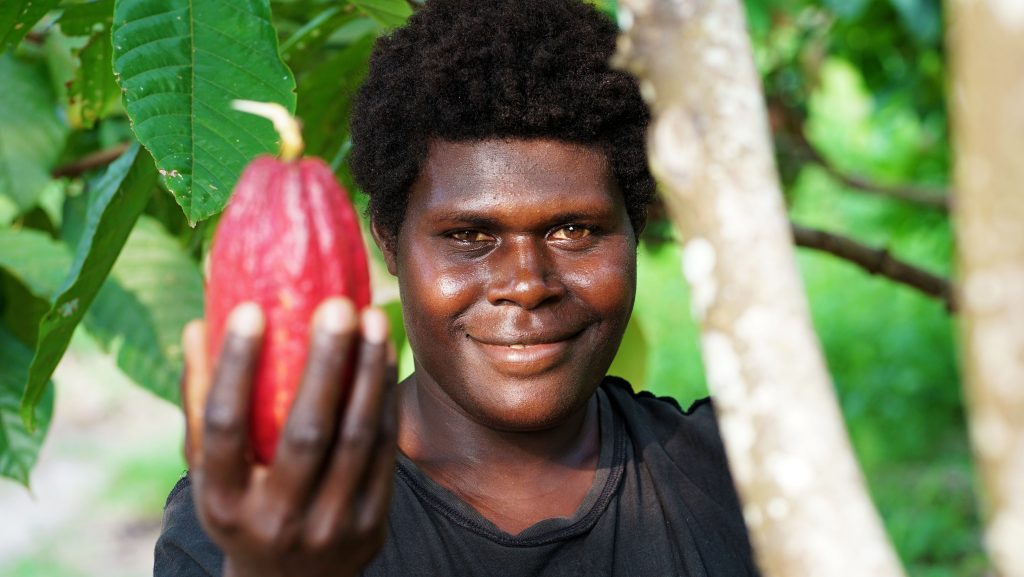
Supporting climate change resilience
Communities in the Autonomous Region of Bougainville (ARoB) in Papua New Guinea now have the skills to be more resilient to climate change thanks to training delivered by CARE under the Australian Humanitarian Partnership (AHP) Disaster READY project.
The training focused on climate change adaptation skills, such as climate-smart agriculture, as well as food preservation. The training workshops play an important role in supporting communities to prepare for disasters given Bougainville is prone to multiple climate-related hazards.
Meet Emily
One training participant, Emily Damana, who is the Ward member for Metonai, South Nasio constituency in Kieta, is ensuring the skills are used by supplying rice mills to the people in her Ward.
Emily was one of 37 people trained in climate-smart agriculture and food processing methods. The training was the first of its kind in her Ward.
“Since CARE introduced the Disaster Ready program, I have seen significant changes within my Ward and constituency. My people have shown great interest in the theory and practice of food processing”, says Emily.
Cassava and sweet potatoes are climate-resilient crops commonly found on Bougainville. During the food processing training, the communities were taught how to grind the starches and preserve them. These starches can also be turned into bakery products, such as cookies and doughnuts. Emily explained that their traditional method of cooking cassava was boiling, but the training taught them new skills such as how to turn food crops into flour, which can be preserved for up to six months.
“As the Ward member, I want to acknowledge CARE for introducing this program”, says Emily. She added that the skills obtained can help women in the community to earn an income.
“Mothers in my Ward have shown interest in using their baking skills to start small businesses. This can provide financial support for their families during times of disaster and help pay for their children’s school fees,” explains Emily.
Emily adds that the training has inspired the women of West Apiate to be innovative and come up with new baking recipes using cassava, sweet potato, and flour. Due to the excellent participation from the community, Emily plans to continue providing support to the community.
“With this training, I believe it is my responsibility as a leader to bring some assistance to the people. Therefore, I have applied for two rice mills to encourage our farmers to engage in rice farming. My plan is to support the farmers to produce large scale and supply rice and flour bags directly to stores in the Kieta and Paguna.
“Additionally, I am planning to take the mothers [mentioned above] to showcase their products at the Bougainville annual Cocoa Festival.”
Emily happily confirmed that the women in her Ward now have the skills to ensure they have adequate food supplies during drought seasons or any disasters. They can sustain themselves by turning their crops into different products for consumption and raising money for their families.
Donate now
Support our ongoing work to create a more equal world.
Your donation can help end extreme poverty and give people the means to build a better future for themselves in countries like Papua New Guinea.
For those living in extreme poverty, your support brings education and training, healthcare and clean water, nutritious food, and new ways to earn an income. And in times of crisis, you help us deliver emergency relief. Please donate today.
Read more about our ongoing impact in Papua New Guinea here
The on-going work we do in Papua New Guinea is in partnership with these local organisations: AROB Provincial Health Office, Bougainville Healthy Communities, Catholic Health Services (Bougainville), Department of Provincial and Local Level Government Affairs, Eastern Highlands Provincial Division of Health, EBC Health Services, Lutheran Health Services, Lae, Markham District Health Services, Morobe Provincial Division of Health, National Department of Education, National Department of Health, Nissan District Village Assembly, Obura Wonenara District Administration, Office of the Governor – Eastern Highlands Province, Office of the Open Member – Obura Wonenara District.
